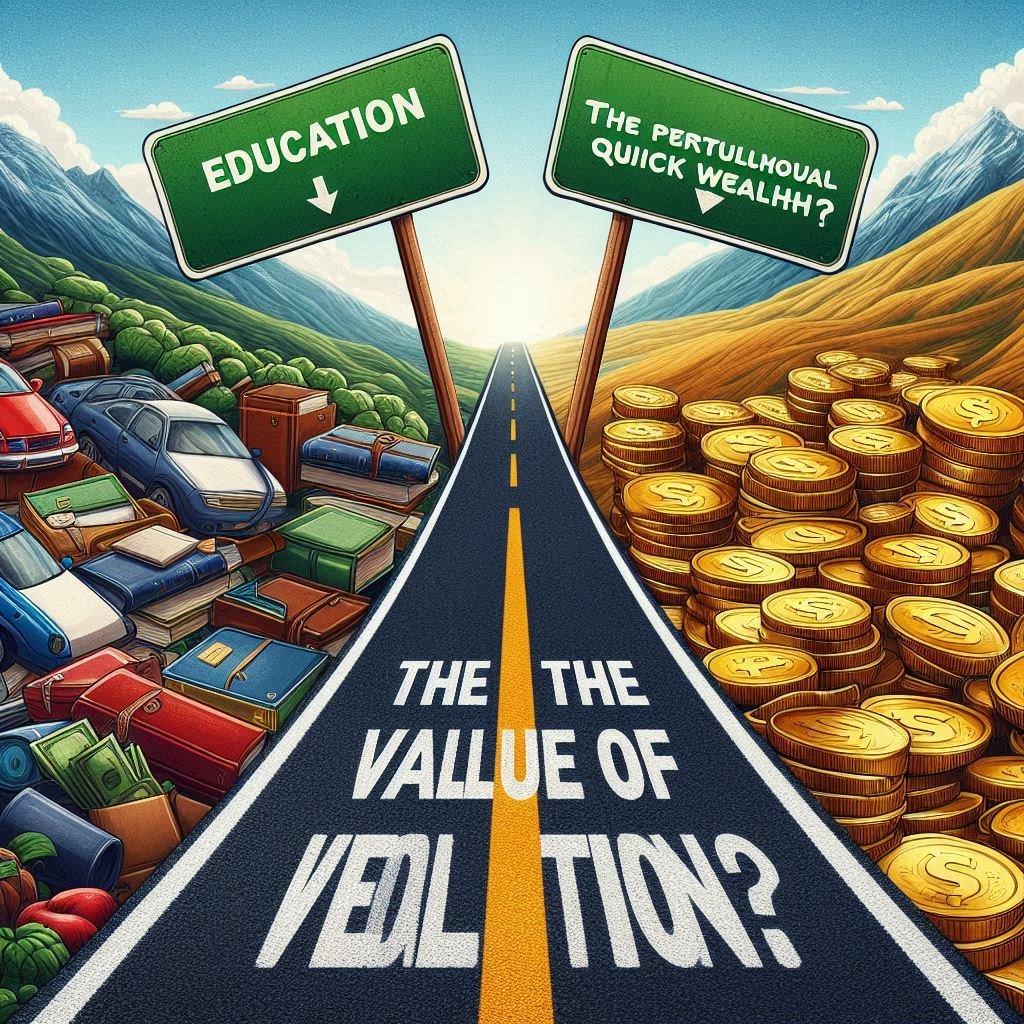The fast pace of modernity often gives space for criticism towards education. Most of their been major dilemmas the youth is encountering is how could they believe that education is the key to their successes while observing, on the one hand, graduates who have had terrible experiences and on the other hand, ultra-rich people who earned their riches in questionable ways? This inconsistency throws up a burning question—is education worth the struggle, or has its significance eroded with the passage of time?

The Perennial Value of Education
Education has always been seen beyond a commercial case. It opens the career doors, but
rather the prevalent possible essence lies in acquiring skills, critical thinking, and development of
one’s own being. Education prepares one for:
–Tackling real-life situations
-Teaching to innovate and handle change
-Giving back to society
Though quite a few stories of graduates go round about the difficulties of finding work, yet these stories are very much backed by data that education, indeed, leads an individual to enjoy better earning ratios and better quality of life in times to come.

Understanding the Wealth Dichotomy
Growing stories of getting “quick-rich” all interspersed with material success twist
success philosophies to skewed engagements. From extravagant influencers for social media
curriculums to dubious businesses, all chase wealth and the reek of moral and sustainable
success is put under the hammers of materialist thinking. However, these shortcuts create the
risk of shady businesses being born which are mostly temporal.
Besides the odds facing graduates, education gives a nucleus to the emergence of resilience,
the conservation of virtue, the generation of democracy, variety of skills, and the quality of wealth
with potential endurance. It is absolutely vital to continue propagating these values to coming
populations.
Redefining Success
In short, it is the need of the hour to redefine what success means and imbibe into the next generation this renewed belief in education as a tool for both personal and professional growth:
Tis high a big hundred. That is the high-flying star that gives home to super-sporting class and lawyers. This is an approach that reconfigures the whole working basis of jobs in the educational system so that students are practically set to take on any jobs found out there.’

How to Inspire the Next Generation
These include:
– Putting a premium on practical skills: Integrate real-world skills into the education system so that students will be job-ready.
– Make role models visible: Get stories out about individuals whose success was borne out of education and hard work, ensuring the emphasis is on their impact.
– Make lifelong learning a practice: Learning does not stop with graduation. Continuous self-improvement will make a real difference.
– Emphasizing ethics and integrity: Give the younger generation the lesson that sustainable success comes only through ethical practice, not shortcuts.

What can be adapted from this?
Education, of course, is the vessel that shapes lives and communities; it is time to change the wording. The one interesting thing we can do for the next generation is redesign the way we see success: to broaden the way we explain the plethora of benefits education brings. And give them the tools to face modern challenges, and we will see a new generation of learners emerge who see education as a viable means with which to mean something and build the ethical foundations for their success.



